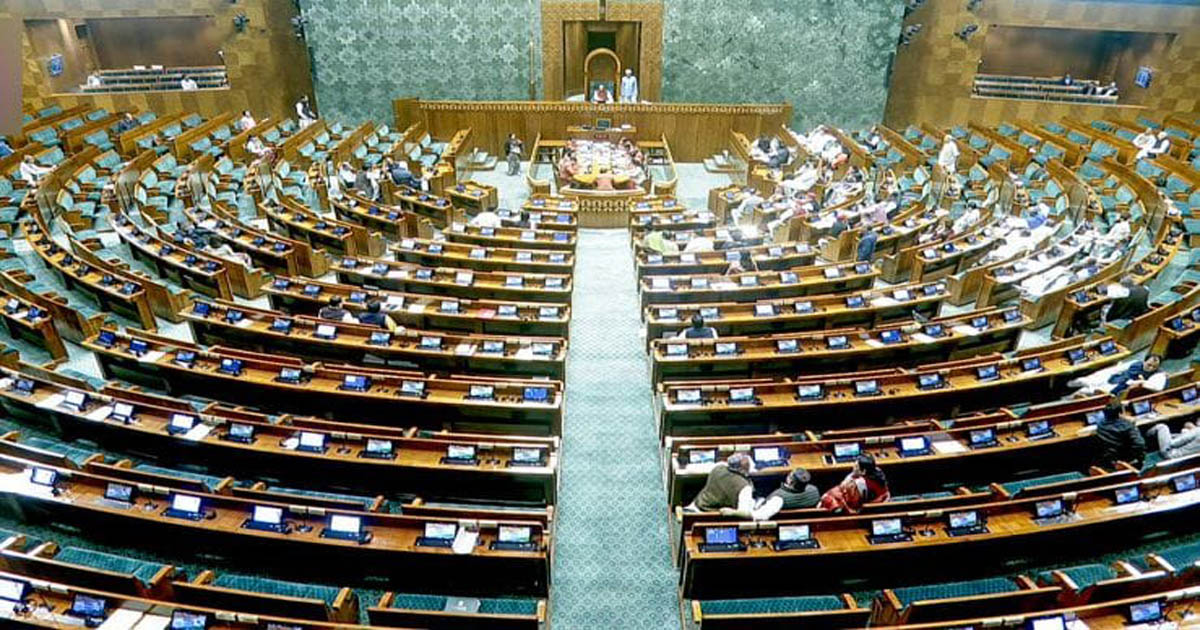Now Reading: Rajya Sabha Waqf Bill Battle Tightens, NDA Poised for Narrow Victory
-
01
Rajya Sabha Waqf Bill Battle Tightens, NDA Poised for Narrow Victory
Rajya Sabha Waqf Bill Battle Tightens, NDA Poised for Narrow Victory

New Delhi, [Date] – The political temperature in the Rajya Sabha has soared as the contentious Waqf Amendment Bill faces a crucial vote, with the ruling National Democratic Alliance (NDA) and the opposition engaged in a fierce battle for numbers. While the opposition is mounting a spirited challenge, current projections suggest the NDA may narrowly secure victory, potentially edging out the opposition with a projected vote of 130 to 106.
The Waqf Amendment Bill, which seeks to streamline the management of Waqf properties and enhance transparency, has ignited a political firestorm. The opposition has vehemently criticized the bill, alleging it encroaches upon the rights of minority communities and centralizes power in the hands of the government. They argue that the bill undermines the autonomy of Waqf Boards and could lead to the misappropriation of valuable properties.
The NDA, on the other hand, maintains that the bill is essential for modernizing the administration of Waqf properties, curbing corruption, and ensuring that the benefits reach the intended beneficiaries. They assert that the proposed reforms are necessary to bring about greater accountability and efficiency in the management of these assets.
The Rajya Sabha, known for its delicate political balance, has become the epicenter of this legislative showdown. With the NDA holding a slim majority, every vote counts, and both sides are leaving no stone unturned to garner support. The political maneuvering has been intense, with parties issuing whips, engaging in last-minute negotiations, and reaching out to smaller regional parties and independent members.
The Numbers Game:
The current composition of the Rajya Sabha is crucial in understanding the dynamics of this vote. While the NDA holds a numerical advantage, the opposition is determined to exploit any potential cracks in the ruling coalition.
- NDA Strength: The NDA’s strength is bolstered by its own members and the support of allied parties. However, internal dissent and potential abstentions remain a concern.
- Opposition Unity: The opposition, comprising a diverse array of parties, is attempting to forge a united front. Their strategy relies on maximizing their combined strength and persuading fence-sitters to vote against the bill.
- Regional Parties and Independents: The role of regional parties and independent members is pivotal. Their votes could tilt the balance in either direction. Both the NDA and the opposition are actively courting these crucial players.
Key Contentions and Arguments:
The debate surrounding the Waqf Amendment Bill has centered on several key issues:
- Centralization of Power: The opposition argues that the bill grants excessive powers to the central government, undermining the autonomy of state Waqf Boards. They fear this could lead to political interference and the erosion of minority rights.
- Transparency and Accountability: The NDA contends that the bill aims to bring greater transparency and accountability to the management of Waqf properties. They argue that the existing system is plagued by corruption and mismanagement, necessitating reforms.
- Protection of Waqf Properties: Both sides claim to be committed to protecting Waqf properties. However, they differ on the methods. The opposition fears that the bill could facilitate the acquisition of these properties by vested interests, while the NDA insists that it will strengthen safeguards.
- Minority Rights: The bill has become a touchstone for the debate on minority rights in India. The opposition alleges that it is part of a larger pattern of policies that discriminate against minorities, while the NDA refutes these claims.
Potential Implications:
The outcome of the Rajya Sabha vote on the Waqf Amendment Bill will have significant implications:
- Political Ramifications: A victory for the NDA would be seen as a major political triumph, strengthening its legislative agenda. Conversely, a defeat would be a significant setback, highlighting the challenges of managing a slim majority in the Upper House.
- Impact on Waqf Administration: The bill, if passed, would reshape the administration of Waqf properties across the country. Its implementation could have far-reaching consequences for the management of these assets.
- Social and Communal Dynamics: The debate surrounding the bill has already heightened social and communal tensions. Its passage could further polarize public opinion, while its rejection could be seen as a victory for minority rights.
Looking Ahead:
As the Rajya Sabha prepares for the crucial vote, the political drama is reaching its climax. The outcome remains uncertain, but the NDA’s projected narrow lead suggests that it may ultimately prevail. However, the opposition’s determined resistance and the unpredictable nature of parliamentary politics mean that anything is possible.
The nation watches with bated breath as the fate of the Waqf Amendment Bill hangs in the balance, with its implications set to resonate far beyond the walls of the Rajya Sabha. The final vote will not just decide the fate of the bill, but also the tone of the political discourse for the foreseeable future, and the relationship between the government and minority communities.










